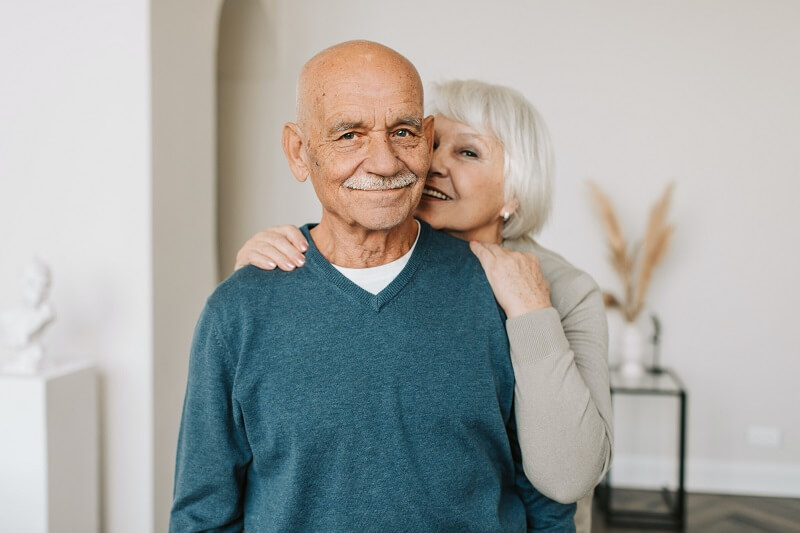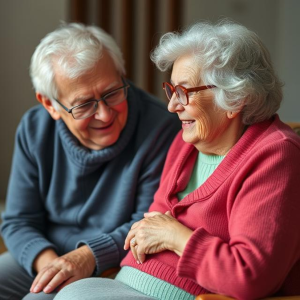It’s painful to see your aged loved ones gradually losing all their memory and their wrinkly faces no more curving up with a smile when they see you. Dementia can be intimidating and scary for the caregiver and the person suffering from it.
Although there is no known treatment for dementia, recent technological advancements are making people with dementia or Alzheimer’s feel more safe and comfortable while also lessening the burden of caregiving.
How can Assistive Devices Help People with Dementia?
Assistive devices don’t have to be complicated or expensive to be helpful. It has been observed that even small, everyday items make a positive difference to seniors suffering from dementia living in a household.
For instance, products manufactured to help elderly individuals live better lives are also helpful for seniors who have dementia. These items include equipment for maintaining continence and mobility aids. Apart from that, many products are particularly designed to address the requirements of individuals with dementia, such as memory aids.
It is generally considered a good idea for older adults to start utilizing any new equipment as early as possible, so they can quickly incorporate those tools into their daily routine.
Let’s explore a number of remarkable developments created particularly to improve the quality of life for those suffering from dementia.
Assistive Devices And Technology for Dementia
Numerous helpful technologies are available to help your elderly loved one with dementia live independently in their home for longer hours, giving you time to unwind.
Personal Alarms
In case of a mishap, Personal alarms with a live alert feature communicate with a central hub next to your parents’ telephone to warn you, a close contact, or a monitoring team, allowing you to talk with them immediately, determine what’s wrong, and obtain the necessary treatment immediately.
These come in quite handy if a dementia patient encounters a situation which he is not capable enough to handle on his own.
Telecare Systems
Personal alarms are typically included in telecare monitoring systems, which employ sensors placed throughout the home to track digital activity. Telecare monitoring systems only raise the alarm when anything unexpected or erroneous is detected, similar to sensor burglar or car alarms. For instance, if your parent or the senior you are a caregiver for does not close the front door or get out of bed in the morning, a 24-hour monitoring team or you are alerted via an app so that a neighbor can be contacted at once to check on them.
Home Security
Numerous little devices and gadgets may help make elderly’s life at home a little bit easier and safer, and most of them are quite affordable! Although the “futuristic smart home” we were promised may not exist, small, personal devices can make older people’s surroundings safer and ease caregivers’ worries.
Smart doorbells and locks can help homeowners make their homes more secure while also enabling them to keep a close check on household elders and any guests.
Smart lighting, specific fire and smoke alarms, and water overflow sensors, contribute to making your elderly’s house safe, enabling them to live independently for longer.
GPS Trackers
GPS trackers function just how you want them to and are designed to be worn on the body like personal alarm clocks. You may use these fobs and wristbands to locate your client or loved one in panic situations, for instance, if they aren’t returning calls or haven’t been home in a while. GPS trackers are a great, affordable solution if you are taking care of a dementia patient who is vulnerable to wandering.
Communication Aids
Being socially connected is essential for sustaining one’s quality of life in memory care. According to various studies, people with dementia may remember how they felt about an occurrence even when they are unable to recollect faces or names.
A senior with dementia may need an assistive gadget if they experience communication problems. With the aid of adaptable mobile devices, seniors may maintain relationships with friends and family and bring down feelings of isolation and loneliness that are all too common among the elderly. People with speech impediments can significantly benefit from communication aids.
Memory Aids
Forgetfulness is a normal part of aging and is not usually a clinical sign of dementia. However, those who have dementia undoubtedly face this problem more frequently. The good news is that there are a number of different types of assistive technologies that may help remind your loved ones to recall their belongings, feed the pets, or take their medications.
The pressure of remembering everything in daily life can be lessened with the help of technology like automated medication dispensers and memo prompts.
Screen Readers And Visual Aids
Seniors with dementia benefit from screen readers and visual aides because they offer aural and visual clues that improve understanding and engagement. By reading aloud text from displays, these tools increase accessibility to information. They also provide bigger fonts and simpler user interfaces, which improve user engagement and promote cognitive function. As a result, seniors are better able to explore digital information and communication.
Voice Reminders
By using voice reminder devices Caretakers can customize reminders for their loved ones. While some voice-controlled technology works via a motion sensor, others allow caretakers to schedule the reminder(s) to play at a specific time.
Devices that detect motion can be helpful for those who are prone to wandering since caretakers may pre-record a voice as they approach the door, warning them not to walk outside at night.
For seniors with dementia, a small digital recorder that may be worn around the neck or used as a note pen can be helpful. With the use of this technology, people may record communications for subsequent listening.
Independence Enhanced with Assistive Devices
Devices and systems which help seniors suffering from dementia reduce their dependence on others are referred to as assistive technology. Few of them are particularly designed to compensate for the loss of physical functions and cognitive abilities that tag along with dementia.
Understanding the true purpose of assistive technology extends beyond its technical aspects and focuses more on improving a person’s quality of life. This is accomplished through increasing safety, living circumstances, social contacts, and independence that collectively transform the lives of dementia patients into ones that are profoundly enriched and meaningful.






